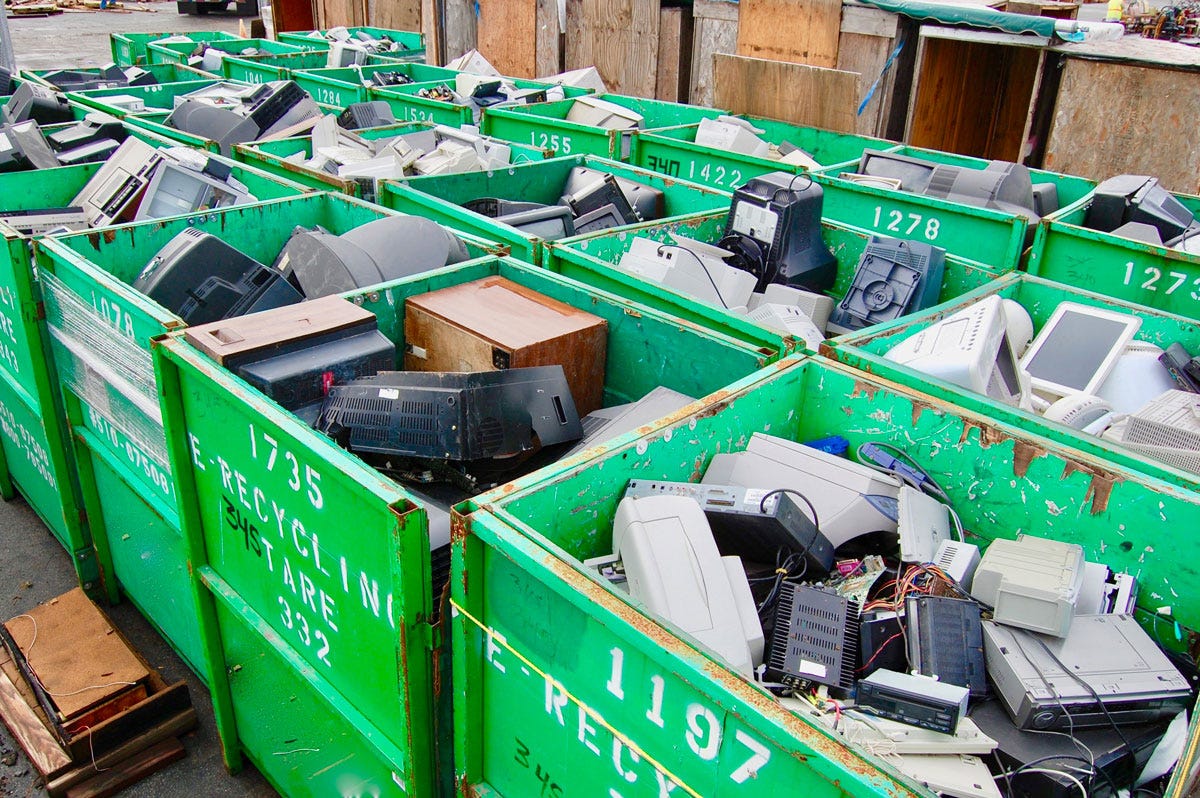
Sustainable Solutions: E-Waste Disposal for a Greener Tomorrow

Sustainable Solutions: E-Waste Disposal for a Greener Tomorrow
Electronic waste, or e-waste, poses a significant environmental challenge as technology continues to advance. Proper disposal of electronic devices is crucial for minimizing the environmental impact and promoting sustainability. In this article, we’ll delve into the importance of e-waste disposal and explore sustainable solutions for a greener tomorrow.
Understanding the Impact of E-Waste
E-waste consists of discarded electronic devices such as smartphones, computers, tablets, and appliances. The improper disposal of these items can result in environmental pollution due to hazardous materials like lead, mercury, and cadmium. Understanding the impact of e-waste is essential for taking proactive steps towards responsible disposal.
The Environmental Hazards of Improper Disposal
When electronic devices end up in landfills, they release toxic substances that can contaminate soil and water. The hazardous chemicals present in e-waste can have detrimental effects on ecosystems, wildlife, and even human health. To mitigate these risks, it is crucial to adopt proper e-waste disposal practices.
Promoting Responsible E-Waste Recycling
One of the most effective ways to address e-waste is through responsible recycling. E-waste recycling involves the collection, processing, and reuse of electronic components. This not only prevents hazardous materials from entering landfills but also conserves valuable resources by extracting and repurposing materials from discarded devices.
The Importance of Certified E-Waste Recyclers
When disposing of electronic devices, it is crucial to choose certified e-waste recyclers. Certified recyclers adhere to industry standards and regulations, ensuring that the recycling process is conducted responsibly and ethically. This includes the proper handling and disposal of hazardous materials to minimize environmental impact.
Encouraging Electronics Reuse and Donation
Another sustainable solution to reduce e-waste is promoting electronics reuse and donation. Devices that are still functional can be donated to charitable organizations, schools, or community centers. Extending the lifespan of electronic devices through reuse not only reduces e-waste but also benefits individuals and communities in need.
Corporate Responsibility in E-Waste Management
Large corporations play a significant role in e-waste generation, given their extensive use of electronic devices. Corporate responsibility in e-waste management involves adopting sustainable practices, such as partnering with certified recyclers, implementing e-waste collection programs, and promoting the responsible disposal of electronic equipment.
Government Regulations and Initiatives
Governments worldwide are recognizing the urgency of addressing e-waste and are implementing regulations and initiatives to ensure proper disposal. These measures may include enforcing recycling targets, restricting the export of e-waste, and encouraging manufacturers to design products with recyclability in mind. Staying informed about these regulations is crucial for individuals and businesses alike.
Educating the Public on E-Waste Disposal
Public awareness and education are key components of effective e-waste management. Informing the public about the environmental impact of improper disposal, the benefits of recycling, and the availability of e-waste collection programs can encourage responsible behavior and contribute to a culture of sustainability.
The Role of Technology in E-Waste Reduction
Innovation and technology also play a role in e-waste reduction. Manufacturers are exploring sustainable design practices, such as modular and upgradable devices, to extend the

